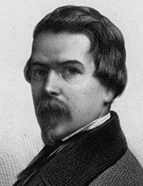

Who was Varnhagen? A follower of Ranke, the positivists, the methodists? Could it be that there are practically no references to Ranke in his works? What positivism or methodical principle should we fit him into? Comte and Monod are also authors absent from his work. Didn't Capistrano de Abreu, in 1878, regret that Varnhagen "ignored or disdained the body of doctrines that in recent years have become a science under the name of sociology"? ( Necrológio [Necrology], 1878, p. 507) and didn't Gilberto Freyre, in Casa Grande & senzala [The masters and the slaves], consider it "childishly simplistic when it left pure historical research for the philosophy of history"? On the other hand, he did not fully engage with the epistemological movement that gained prominence in the 19th century, influenced by Voltaire's philosophy of history, which rejected traditional erudition, particularly its antiquarian aspects. Without attempting to situate him within a complex and ambiguous history of influences, it is reasonable to assert that Varnhagen embodies a set of general and widespread principles of modern 19th-century historiography, which appear ubiquitously without aligning with any specific theoretical school: i.e., the establishment of historical truth through archival research, the pursuit of original documents, narrative objectivity, and the impartiality of the historian. These characteristics reflect clear traces of the scholarly and documentary tradition of the Lisbon Royal Academy of Sciences. As he states in the preface to Historia das luctas com os Hollandezes no Brazil [History of the struggles with the Dutch in Brazil]: "The historical school to which we belong—as we have sometimes said—is far removed from that which is overly sentimental and, in its attempt to provoke emotion, strays from the truth" (1871, p. XXV). Of these prescriptions, the most decisive for 19 th -century historical epistemology was the question of the historian's impartiality. And in it, despite his rhetorical efforts, Varnhagen completely loses his way. The distinction between subject and object of research, the theoretical foundation of the emerging science of history, was a premise that he found very difficult to respect. He overlooked it more frequently than he realised, and more often than we might initially assume. The author's presence within his compositions is impressive. "We will narrate—explains the historian in the first chapter of his Historia geral do Brazil [General History of Brazil]—the events as they have been presented to us, in view of the documents, the reflection, and the study; and some other time, without abusing, we will take it upon ourselves to make those considerations to which we are led by intimate convictions; because it is sad of the historian who does not have them in relation to his country, or who, having them, does not dare to present them" (1854, p. 12). Even in his most thoughtful work, closer to what the science of 19 th -century history was capable of, he can't hide in the text
This work is financed by national funds through FCT - Foundation for Science and Technology, I.P, in the scope of the projects UIDB/04311/2020 and UIDP/04311/2020.
